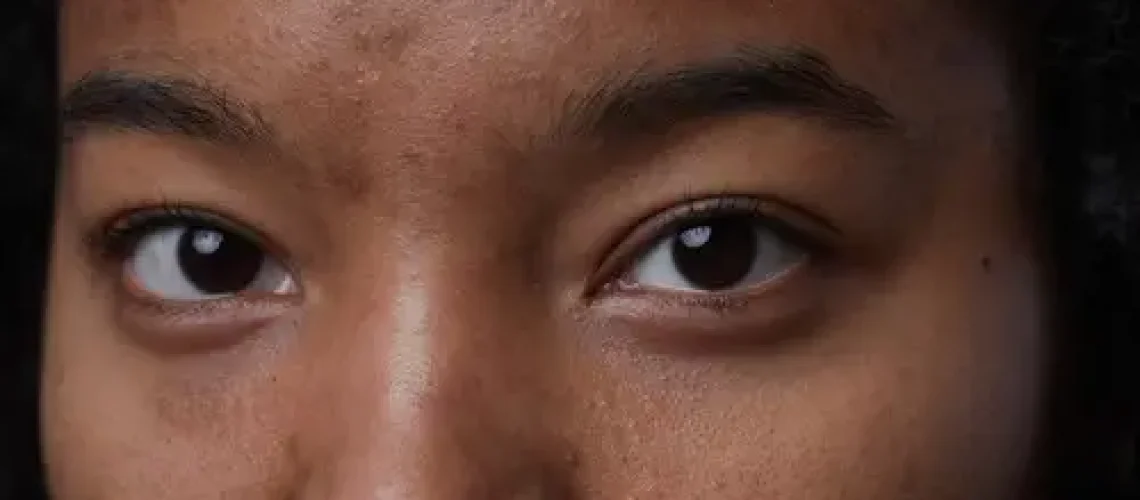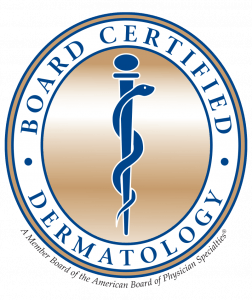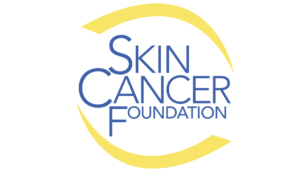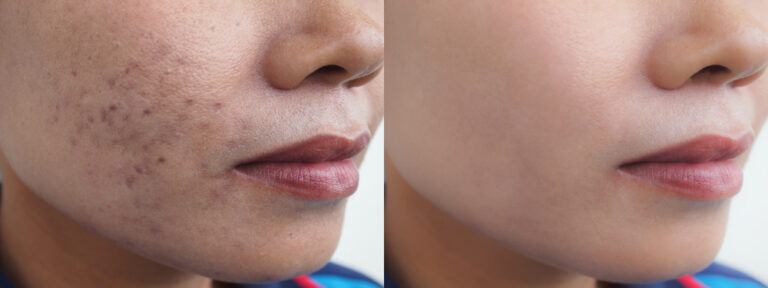
Acne is a common skin condition that affects many people, regardless of age or gender. While acne can be frustrating, the dark spots it leaves behind can be just as bothersome. Many of our patients are more upset with discoloration than acne! These dark spots, known as hyperpigmentation, can be challenging to treat and often take months or even years to fade. But don’t worry; there are many ways to treat dark spots and achieve a brighter, more even complexion.
Treat the acne to stop new dark spots!
The first step in getting better is aggressively treating the acne to prevent new dark spots from developing. Often, this includes oral antibiotics, benzoyl peroxide, and retinoids. Sometimes, hormonal therapy and Accutane are necessary if the acne is severe or persistent. Once the acne is under control, it’s time to focus on treating the dark spots
Wear Sunscreen!
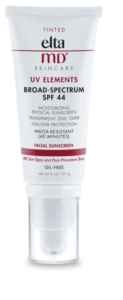
Using sunscreen is also crucial in treating dark spots from acne. Sun exposure can worsen dark spots from acne, so protecting your skin from the sun’s harmful rays is essential. Make sure to wear sunscreen every day, even if it’s cloudy outside. Look for sunscreen with broad-spectrum protection and an SPF of at least 30. There has been increasing evidence of visible light worsening dark spots, too—sunscreens containing iron oxide block visible wavelengths of light. Consider using Elta MD Elements Tinted sunscreen sold at Craig Singer MD Dermatology.
Use topical retinoids!
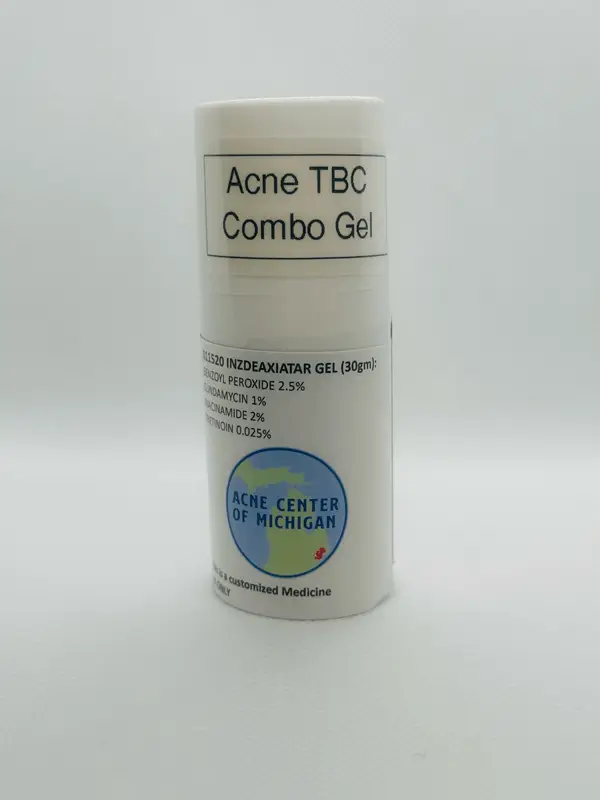
Retinoids are a type of vitamin A derivative that can help to reduce the appearance of dark spots and improve the overall texture of your skin. They work by increasing cell turnover and stimulating the growth of new, healthy skin cells. This will produce an overall lightening of the skin. Retinoids are critical in the treatment of acne as they unclog pores and reduce the inflammatory papules and pustules. Prescription strength retinoids sold at Craig Singer MD Dermatology include Acne TBC Combo and Acne Duo Plus. Azelaic acid is a topical medication that helps both acne and dark spots. It helps unclog pores and reduces pigment production in the skin. Azaleic acid can be purchased without a prescription.
Use skin lightening agents!
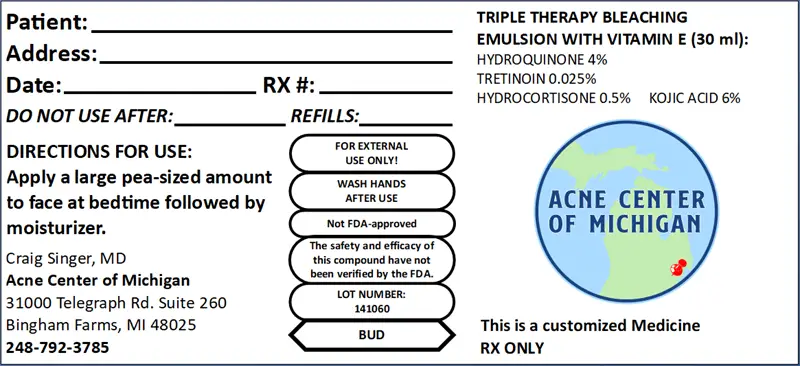
Use skin-lightening agents to reduce pigment production in the skin. Hydroquinone in various concentrations (4 to 8%) is the gold standard for skin-lightening. Hydroquinone blocks tyrosinase, the key enzyme in melanocytes that produce melanin. Combining hydroquinone with topical retinoids and steroids amplifies the effectiveness. Treating only the dark spot with bleaching cream is difficult as this will create an unnatural transition zone with a halo effect. Therefore, one must treat the entire face with the bleaching agent. Hydroquinone is available only through prescription and is sold at Craig Singer MD Dermatology under the tradename Triple Therapy Bleaching Cream. It must be used under the supervision of a physician as prolonged application can lead to paradoxical hyperpigmentation. Other skin lightening agents include tranexamic acid, kojic acid and vitamin C. These can be used in combination with hydroquinone.
Exfoliate regularly!
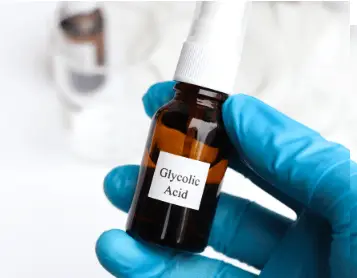
One of the most effective ways to treat dark spots from acne is by exfoliating regularly. Exfoliating helps to remove dead skin cells and stimulate the growth of new, healthy skin cells. Glycolic acid and salicylic acid in various concentrations may be purchased over the counter. Glycolic acid tends to be better for sensitive skin. Be certain to moisturize as these acids will dry the skin. Glycolic acid pads in 10 to 20% concentration are sold at Craig Singer MD Dermatology. In addition, Blackhead Vanishing Pads, which contain a mixture of salicylic acid, glycolic acid and TCA, are very good options for exfoliation as well.
Try a chemical peel!

Chemical peels are a type of treatment that involves applying a chemical solution to your skin to remove the top layer of dead skin cells. This can help to reduce the appearance of dark spots and improve the overall texture and tone of your skin. There are many different types of chemical peels available, so it’s important to talk to your dermatologist to find out which one is right for you. Salicylic acid peels, Jessner peels, and VIPeels are outstanding options and are all suitable for skin of color.
In conclusion, treating dark spots from acne can take time, but with the right approach, you can achieve a brighter, more even complexion. Remember to be patient and consistent with your skincare routine, and don’t be afraid to talk to your dermatologist if you’re having trouble finding the right treatment for your skin.

